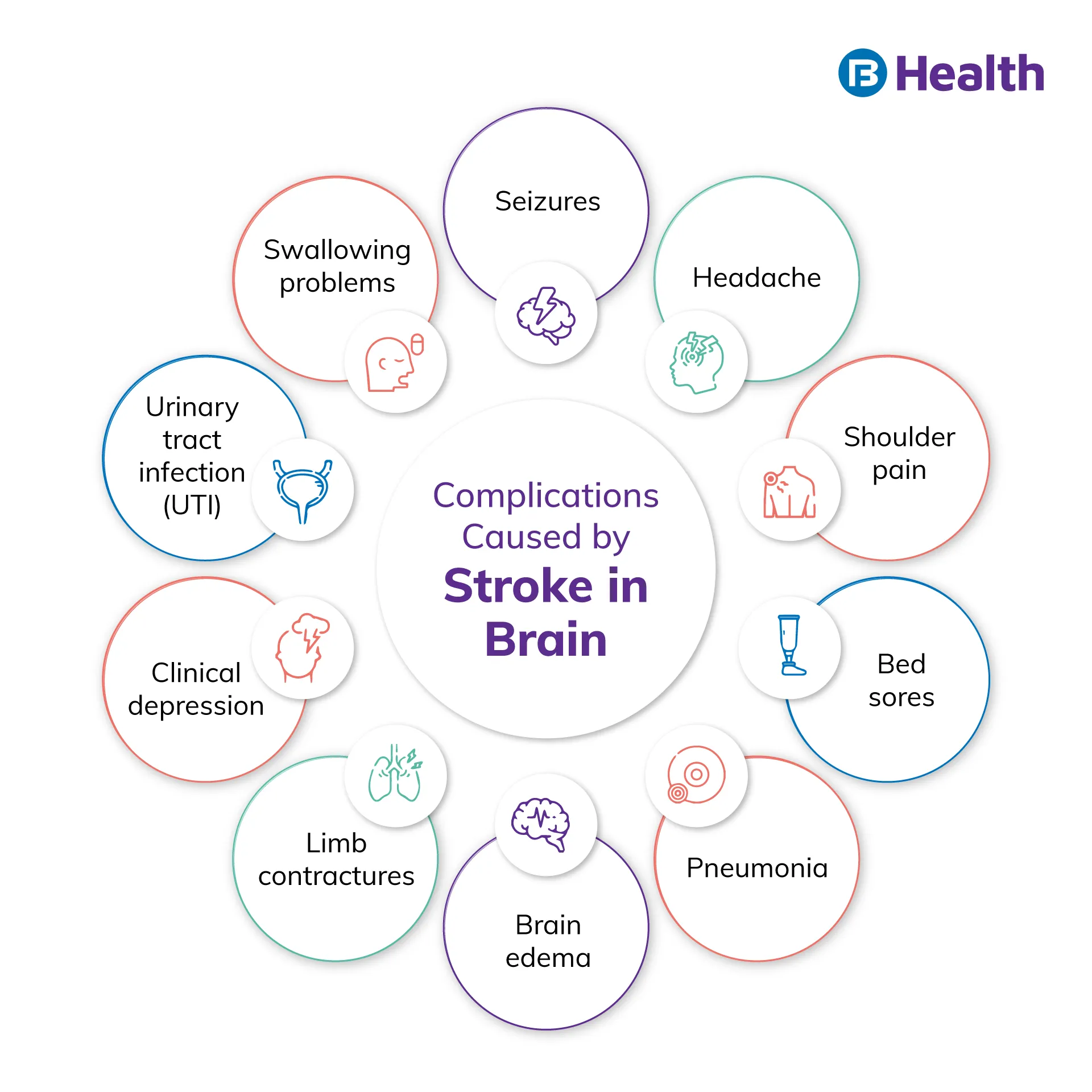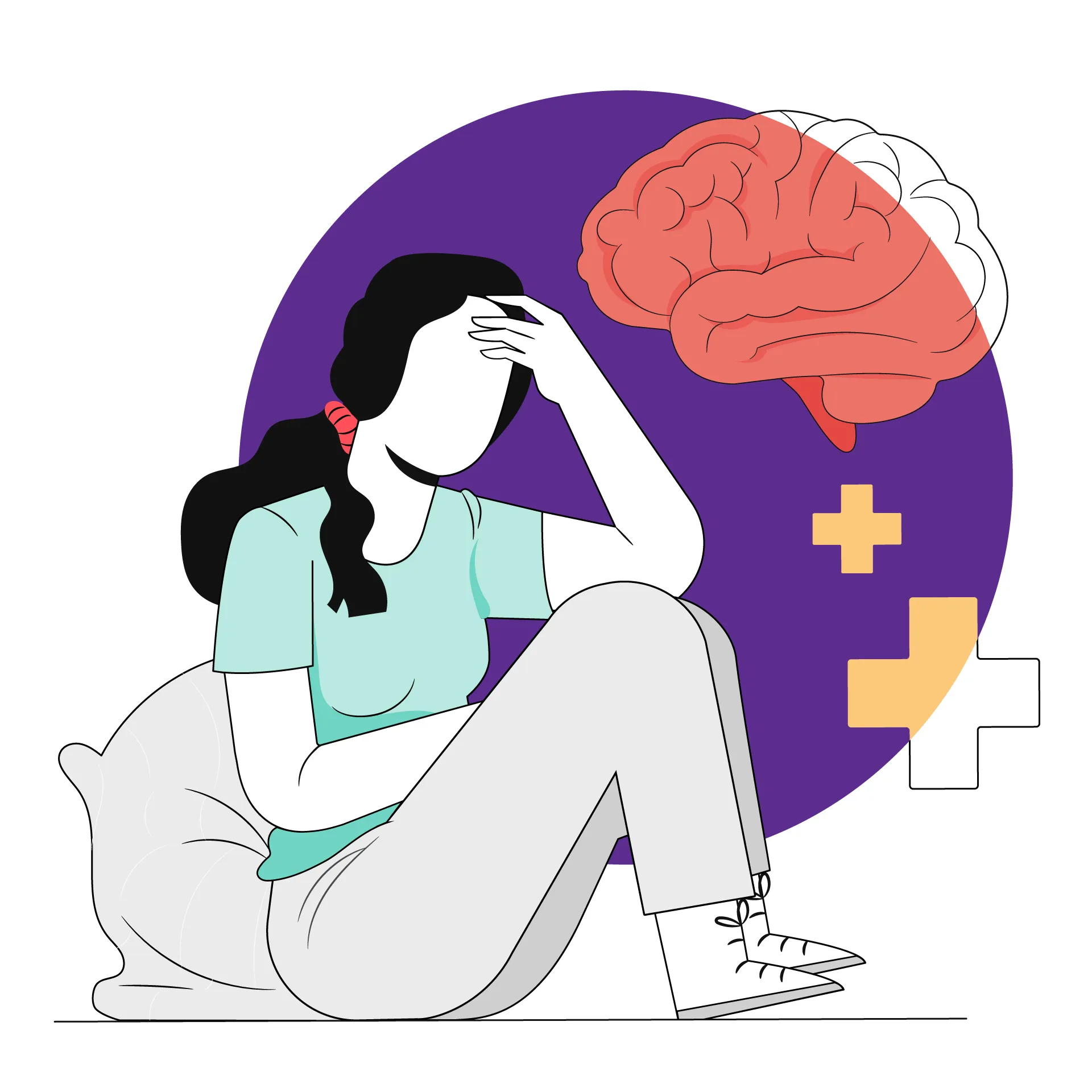Psychiatrist | 5 min read
Stroke in Brain: Its 3 Types and What You Should Know!
Medically reviewed by
Table of Content
Key Takeaways
- Cerebral stroke is a major cause of death and disability in India
- Paralysis, seizures, and confusion are some brain stroke symptoms
- Brain stroke treatment depends on the type of brain stroke you have
A stroke in brain is an emergency and requires immediate medical attention to reduce brain damage and prevent complications. It occurs when a blood vessel in the brain ruptures or when the blood flow to the brain is blocked. Your brain cells begin to die without the supply of oxygen in the blood [1].
Around 15 million people worldwide suffer from stroke [2]. It is one of the main causes of disability and death in India [3]. To help yourself get the right help in times of need, learn about key brain stroke symptoms. Read on to know more about brain ischemia or cerebral stroke.
Brain stroke symptoms
Here are some brain stroke symptoms to look out for.
- Paralysis
- Seizures
- Confusion
- Weakness
- Dizziness
- Disorientation
- Slurred speech
- Vision problems
- Increased agitation
- Behavioral changes
- Difficulty in walking
- Nausea or vomiting
- Lack of responsiveness
- Blurred or double vision
- Sudden and severe headache
- Loss of coordination or balance
- Difficulty speaking or understanding others
- Numbness in arm, leg, and face on one side of the body

Brain stroke causes
Age
Older people are more at risk of stroke in brain. Your risk increases after the age of 55 years. But stroke can occur at any age including teenage and childhood. Even babies can have a stroke.
Gender
Men are at a greater risk of a stroke. But women are likely to get stroke in brain at a later stage in life. This decreases their chances of recovering and thus increases the rate of mortality.
Race and ethnicity
Stroke is common among people belonging from the Middle East, Asia, or the Mediterranean. Similarly, African Americans, American Indians, non-white Hispanic Americans, and Alaskan natives are more at risk of a stroke compared to other ethnic groups.
Weight
Being obese or overweight can put you at risk of stroke in brain. Staying physically active or exercising regularly may help. Even a brisk walk of 30 minutes a day or strength exercises can get you in shape.
Diabetes
Those with high blood sugar levels are more likely to get a stroke. Diabetes tends to harm your blood vessels, thereby increasing the chances of brain ischemia. The injury to the brain is higher if you get a stroke when you have high blood sugar.
High blood pressure
Hypertension is the main cause of brain stroke. It is a matter of worry if your blood pressure is 130/80 or higher. In such cases, follow your doctor’s treatment plan carefully.
Heart diseases
Defective heart valves, atrial fibrillation, and irregular heartbeat can be responsible for causing stroke in brain. In fact, conditions like irregular heartbeat cause one-fourth of all strokes among seniors.
Tobacco
Smoking tobacco raises your risk of cerebral stroke. Nicotine in cigarettes elevates your blood pressure and its smoke leads to fatty build-up in arteries. Cigarette smoking can thicken your blood, which increases the risk of forming blood clots. Those who are exposed to passive smoking are also at risk of brain ischemia.
Medications
Medicines such as blood-thinning drugs to prevent blood clots and low-dose estrogen in birth control pills increase your chances of a cerebral stroke. Hormone therapy for menopause symptoms is also linked with increased odds of a stroke.
Types of brain stroke
Ischemic stroke
This occurs when the oxygen-supplying blood flow to the brain is blocked. Blood clots are often responsible for the blockage, causing brain ischemia. In fact, this type of stroke is the most common one. Around 87% of all cases of stroke in brain are ischemic strokes [4].
Hemorrhagic stroke
This can be more serious than an ischemic stroke. It occurs when a blood vessel in your brain ruptures or leaks blood. This puts pressure on your brain cells and damages them. Uncontrolled hypertension or overdose of blood thinner medicines can cause such a stroke.
Transient ischemic attack (TIA)
TIA is also known as a mini stroke. It occurs when the blood flow to the brain is temporarily blocked. It differs from other major brain strokes as the blockage of blood flow lasts for not more than five minutes. TIA doesn’t lead to permanent damage. It is usually caused by a reduced blood supply to a part of your brain.
Additional Read: World Brain Tumor DayBrain stroke treatment
A stroke in brain may be diagnosed by a physical exam, CT scan, MRI, blood test, carotid ultrasound, cerebral angiogram, and echocardiogram. Brain stroke treatment depends on the type of stroke you are diagnosed with. Treatments may include stents, surgery, and medication such as:
- anticoagulants
- antiplatelet drugs
- statins
- blood pressure medicines
If you have any neurological conditions, take proper medication, make lifestyle changes and practice mindfulness techniques. To understand your condition better, you can book an online doctor consultation with a top neurologist on Bajaj Finserv Health. In case your condition is associated with a psychological disorder, you can also consult a psychologist or psychiatrist. Book doctor consultation without delay to learn how to take care of your mental health. This can help you manage neurological conditions better.
References
- https://www.stroke.org/en/about-stroke
- http://www.emro.who.int/health-topics/stroke-cerebrovascular-accident/index.html
- https://www.ncbi.nlm.nih.gov/pmc/articles/PMC3859004/#:~:text=Stroke%20is%20one%20of%20the,the%20recent%20population%20based%20studies.
- https://www.cdc.gov/stroke/types_of_stroke.htm
Disclaimer
Please note that this article is solely meant for informational purposes and Bajaj Finserv Health Limited (“BFHL”) does not shoulder any responsibility of the views/advice/information expressed/given by the writer/reviewer/originator. This article should not be considered as a substitute for any medical advice, diagnosis or treatment. Always consult with your trusted physician/qualified healthcare professional to evaluate your medical condition. The above article has been reviewed by a qualified doctor and BFHL is not responsible for any damages for any information or services provided by any third party.






